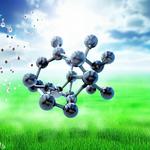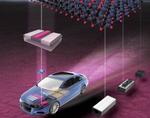Other

“An open-source software can help align artificial intelligence applications in healthcare with data privacy regulations. Audit to forget software (AFS) to remove patients’ information from pretrained artificial intelligence (AI) models in healthcare settings has been developed by KAUST to secure …

“A residual-based approach that detects and corrects voltage and frequency anomalies could protect power grids against covert cyberattacks. A system that detects and mitigates stealthy intermittent attacks against intelligent systems such as small power grids called microgrids is expected to …

“High-pressure experiments show the way to selectively recycle the greenhouse gas into a particular product. Captured carbon dioxide emissions could be turned into valuable chemicals through a selective process driven by renewable electricity. CO2 can be electrochemically converted into a …

“In a world experiencing increased heat stress, a zero-carbon-emission cooling technology that consumes no electricity, operating instead by shedding heat directly into outer space, would be a groundbreaking advance. However, poor standardization and a lack of transparency is hampering this …

“Computer memory systems that work change resistance rather than charge could greatly improve the performance of deep neural networks for machine learning. An alternative way to build neural accelerators could enable more efficient computer memory systems and lead to improvements …

“Gallium oxide offers resistance to radiation and high temperatures, and could be used for data storage and computing in extreme conditions. Among the many hazards encountered by space probes, exposure to radiation and huge temperature swings pose particular challenges for …

“A comparison of different solar-cell technologies shows that an organic material is better at staying cool than common silicon, and how a windy environment can help. Almost all electronic devices get hot, either due to the heat they generate or …

“Calcium outshines chromium in the catalytic production of ammonia. Working together, a humble trio of calcium atoms have defied expectations to break apart one of the strongest chemical bonds known. The atoms form the key part of a catalyst that …

“As the world transitions to renewable power sources such as solar and wind, there is a growing need for high-performance rechargeable batteries to store the energy generated by this intermittent energy source. Today’s lithium-ion batteries are good, but their …

“Using a two-dimensional material to electrically connect to high-power semiconductor transistors improves device performance. Computers, despite all their apparent complexity, are basically just a large number of electronic switches, flicking on and off in the right order to process digital …

